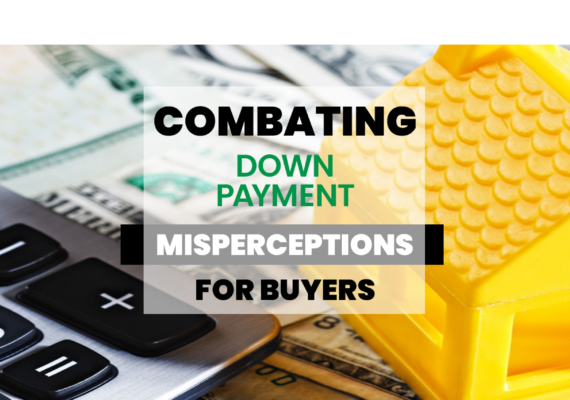First-Time Home Sellers Often Get these 8 things Wrong in Today’s Crazy Market!
Mar 9, 2022
The housing market is a sizzling seller’s game at the moment, where homes stand to spark bidding wars and sell for sky-high prices.
“COVID-19 caused so many people to re-evaluate their shelter needs, resulting in increased demand for homes and a continued lack of inventory,” explains Lindsay Reishman, founding partner at The Reishman Group in Washington, DC.
All in all, this is great news for sellers—yet with soaring prices and high expectations come a whole new set of possible pitfalls that could trip up inexperienced sellers, particularly if they’re selling for the first time.
Curious how you might risk ruining a good thing? We asked some real estate experts to identify what many first-time home sellers get wrong when listing their home today.
1. Overpricing your property
Just because sellers dominate now, don’t think “red-hot market = super high list price.” A smarter strategy is to list lower than your goal and let the market do its magic.
“First-time sellers often erroneously believe that the list price means the desired purchase price,” Reishman says. “In fact, the list price simply indicates an approximate appropriate price, and its purpose is to drive interest in the property.”
The greater the interest, the more likely the price will climb as eager buyers bid on it. You’re more likely to get interest with a lower asking price.
2. Skimping on home showings
In our not-quite-post-pandemic era, some homeowners may list their property, then feel skittish about having strangers traipse through. To cash in, however, you can’t wait it out.
“As soon as the house is listed, it’s vital to allow as many qualified buyers view it as possible, to help build demand,” says Jonathan Faccone, managing member of the former Halo Homebuyers company, based in Bridgewater, NJ. “A seller has a fairly short time window to do this effectively, since if the house sits on the market, buyers may assume something is wrong with it.”
If you’re truly uncomfortable with in-person showings or have serious scheduling conflicts, virtual tours may separate out looky-loos from truly interested parties. Then, once you know you have a prospective buyer who loves your listing, you can have them scheduled for a (masked) showing.
3. Staging slip-ups
With houses selling so fast, you may think you needn’t bother with professional staging. Still, if you want to fetch that dream price that you’ve heard is within reach, it could pay to present your home perfectly, with some professional home-staging help.
“In my recent experience, staging can reduce a property’s time on the market considerably and have a 1% to 5% increase in value offered by buyers,” says Stephen Keighery, CEO of Home Buyers Louisiana.
Today’s market is keeping these interior design pros busy—as in booked solid for months in advance. So plan ahead.
4. Seeing only dollar signs
A big payoff is tantalizing, but money isn’t everything.
“Many people look at price as the end-all-be-all, but a smart seller considers a variety of factors to make an educated decision,” says Aaron Carroll, a real estate agent at Douglas Elliman in Dallas. “For instance, the highest offer may have a loan with an appraisal contingency, while a somewhat lower offer might be in cash.”
Perhaps the bidders with the highest offer need to sell their home first. That could mean a slow or snag-filled deal. You might be better off taking a slightly lower offer.
5. Pouncing on an implausible offer
Guess what: Buyers know it’s a seller’s market too, so some may make ginormous bids to beat out the competition—offers that can fall apart in financing or upon appraisal or inspection.
“In this market, it’s not uncommon for a buyer to submit an offer for a home, sight unseen,” says Deborah Ann Spence, a broker at Fierce Real Estate Corp. in Bala Cynwyd, PA. “Then, if the buyer doesn’t like what he eventually does see, the offer can be withdrawn, and the property is likely to lose traction.”
The takeaway? If something seems too good to be true, it usually is! Work with your real estate agent to understand who is bidding and how serious they are, to avoid having your deal unravel.
6. FSBO blunders
While “For sale by owner” sounds like a direct route to extra profit, cutting brokers out of the picture is a risk.
“Today’s rookie sellers may be tempted to try selling their house on their own,” says Faccone, to save the agent’s commission. “But doing so severely limits your exposure.”
FSBO homes, after all, can’t be listed on the Multiple Listing Service, which is where most buyers shop for homes. And this exposure is crucial if you want to reach a large audience and fetch the best price.
“At the very least, put the house on your local MLS [multiple listing service] through a flat-fee listing agency,” says Faccone. “You’ll still be responsible for the commission to the buyer’s agent, but by reaching more potential buyers, you’re apt to get a higher price.”
Also, in this era of bidding wars, having an agent at your side is a huge help. Navigating a flurry of “highest and best offer” bids is tough for a rookie!
7. Spacing out on the new place
So you’re all set to sell your house—great! Now, what’s your next move? Avoid winding up with an anxious buyer on one hand and no place to go on the other.
“It can be hard to find the right new home now, so start searching immediately once your property comes to the market,” Reishman says. “Then be sure to negotiate an extended closing or leaseback, or even make the sale contingent upon purchasing another home.”
If all else fails, line up a rental.
8. Assuming this hot market will last
Inexperienced sellers may turn down a worthy offer or even forestall listing their home, hoping prices will continue to go up. While it may take a while for the seller’s market to top out, interest rates are expected to creep up this year, which could reduce the pool of hungry buyers.
“Generally speaking, now is a good time to both buy and sell, with historically low interest rates fueling activity,” says Reishman. “But with rates on the rise, I anticipate the velocity of transactions to slow down. Overall, I encourage my clients not to try to time the market, but to let their own specific housing needs dictate what they do.”









